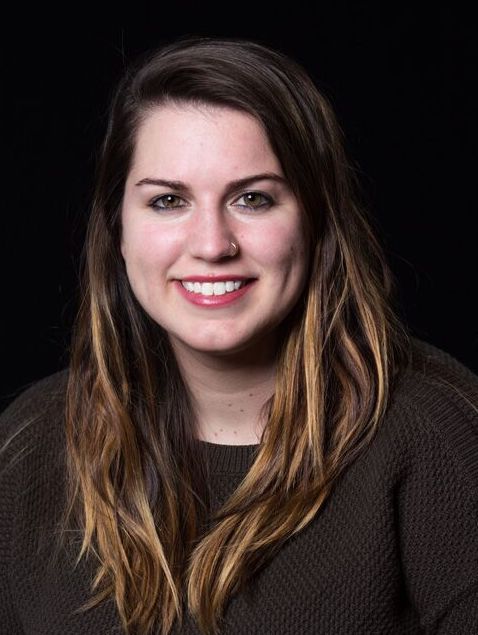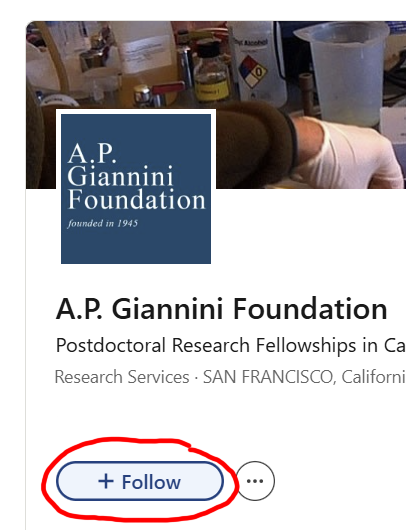
Summer 2025 Newsletter
Fellow’s Research Provides New Insights into Treating a Range of Psychiatric Conditions

2022 Fellow Jacqueline Giovanniello, Ph.D., was appointed Assistant Professor in the Department of Neural Sciences at the Lewis Katz School of Medicine at Temple University in January 2025. Having earned her undergraduate degree in human biology from Brown University and her Ph.D. in biology and neuroscience from Cold Spring Harbor Laboratory, Jackie completed her postdoctoral fellowship under the mentorship of Dr. Kate Wassum at UCLA. The focus of Jackie’s postdoctoral work was understanding which neural circuits promote maladaptive habit formation as a result of stress.
As Jackie explains, individuals have two strategies for decision making: one is goal-directed and one is habitual. When we use a goal-directed strategy, we consider the possible outcomes of our options and choose accordingly. When we use a habitual strategy, we reflexively execute behaviors that have been successful in the past. A balance between goal-directed and habitual decision making enables us to make adaptive, efficient choices. An over reliance on habitual decision making, however, can be problematic and is an underlying characteristic of a number of psychiatric conditions including anxiety, obsessive compulsive disorder, autism and addiction.
The Giovanniello Lab seeks to understand how our brain controls our decision-making behavior, and how external factors such as chronic stress and drugs of abuse modulate the neural circuits that govern behavioral control. In a recent first-author manuscript in Nature, Jackie shared her findings that chronic stress can lead to disrupted decision-making and pathological habits that characterize substance use disorders and mental health conditions. By understanding the neural circuits that control habit, and how those are disrupted in maladaptive decision-making, Jackie hopes her research will lay the groundwork for better treatments for patients suffering from a range of psychiatric disorders.
As she reflects on her postdoctoral fellowship with the A.P. Giannini Foundation, Jackie describes it as being transformational. “The A.P. Giannini fellowship jump started my career,” she said. “It allowed me to do fundamental work that helped me to obtain a K99/R00 Pathways to Independence Award [from NIMH], and that helped me to start my own lab.”
Jackie recognizes that she has launched her lab at a time when the federal administration has pulled back its support of scientific research. She encourages current postdocs who may be struggling with a decision to pursue a career in biomedical research to stay the course and to do the best science possible with the resources available.
Congratulations to the 2025 Fellows!
Michael Doud, M.D., Ph.D.
For training at the University of California San Diego School of Medicine with Dr. Justin Meyer
Enhancing bacteriophage function against bacterial pathogens using coevolution and synthetic biology
Amy Fan, Ph.D.
For training at the University of California San Francisco School of Medicine with Dr. Matthew Krummel
Cellular mechanisms and functional consequences of trogocytosis in myeloid antigen presenting cells
Dayan “Jack” Li, M.D., Ph.D.
For training at Stanford University School of Medicine with Dr. Michael Longaker
Harnessing the different scarring potential of fibroblasts for anti-fibrotic therapy
Anh Ngo, Ph.D.
For training at the University of California San Diego School of Medicine with Dr. Victor Nizet
Bioimetic human platelet membrane-coated nanoparticles for the treatment of infectious diseases
Rhiana Simon, Ph.D.
For training at the University of California San Francisco School of Medicine with Dr. Corey Harwell
Defining a novel role for opioids in driving microglia-guided neurodevelopment of the limbic brain
Tia Tummino, Ph.D.
For training at the University of California San Francisco School of Medicine with Dr. Allan Basbaum
Long-term imaging of chronic pain and analgesic effects on spinal cord projection neurons
Fangzhu Zhao, Ph.D.
For training at the University of California San Francisco School of Medicine with Dr. James Wells
Hijacking Degrader-drug conjugates for targeted protein degradation and potent cell killing
Follow Us on LinkedIn!
We’ve consolidated our presence on LinkedIn into a single organization page.
Please visit our new page and join us by clicking the Follow button.
